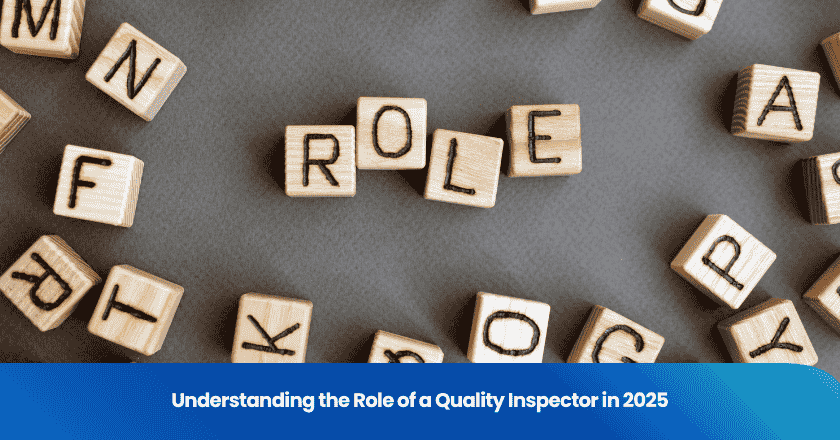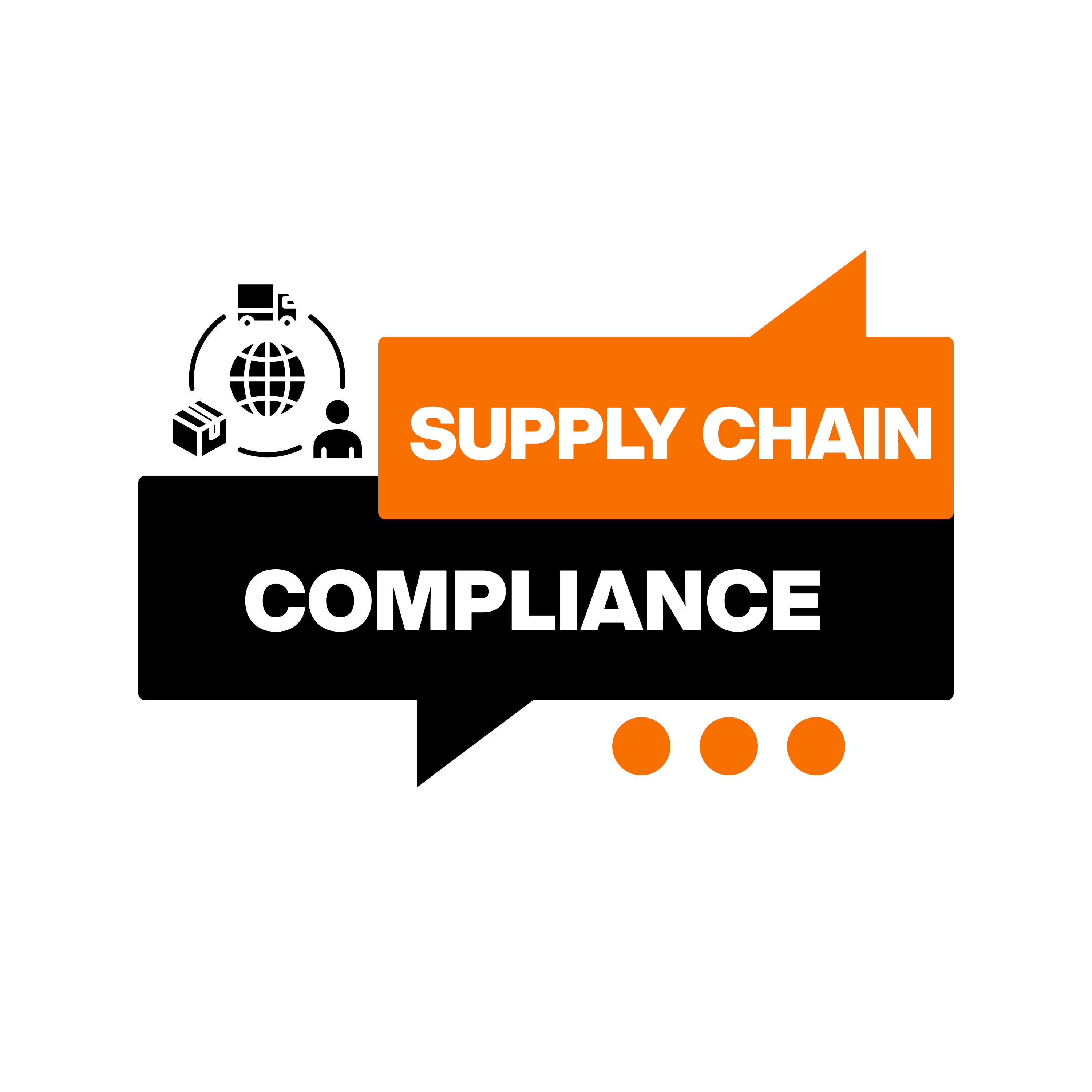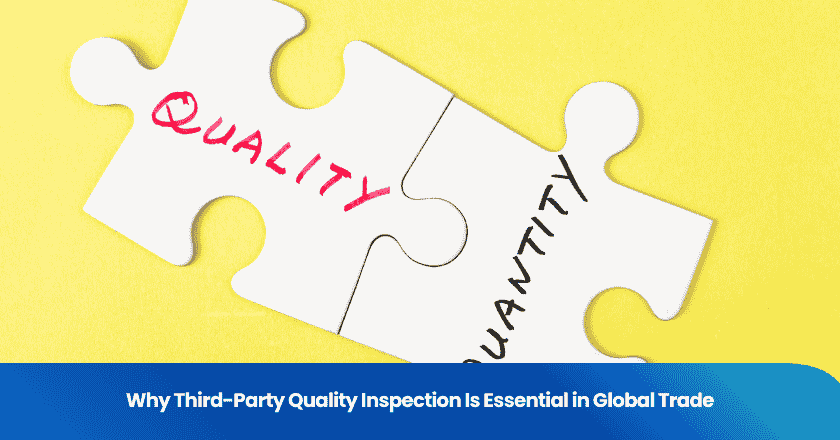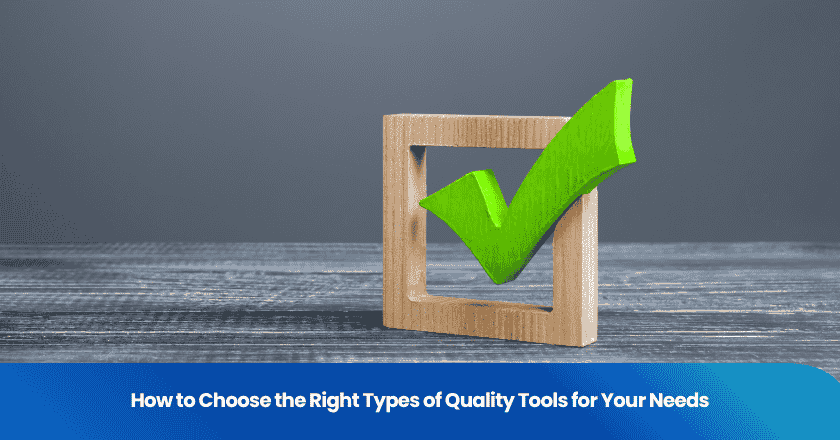
A quality inspector in 2025 ensures products and processes meet strict standards. So, what is a quality inspector? You hold responsibility for verifying that manufacturing operations follow legal, ethical, and operational requirements. Quality inspectors adapt quickly to new technologies, using advanced tools to monitor every step. Your work supports continuous improvement and drives compliance, making products safer for consumers.
In manufacturing, a single quality lapse can spiral into a compliance crisis. Intelligent manufacturers understand QA and QC as two strategic support pillars: one avoids defects by means of process stringency, and the other ensures output fidelity through continuous verification.
Key Takeaways
- Quality inspectors ensure products meet strict standards, protecting consumer safety and enhancing company reputation.
- Attention to detail and strong communication skills are essential for success in quality inspection roles.
- Embrace advanced digital tools and automation to improve inspection accuracy and efficiency.
- Continuous learning and adaptation to new technologies are crucial for career growth in quality inspection.
- Certifications and specialized training can enhance your qualifications and open doors to advanced roles in quality management.
What is a Quality Inspector
As you step into the world of manufacturing or production in 2025, you may ask, what is a quality inspector? You serve as the gatekeeper of product excellence, ensuring every item meets strict standards before reaching the customer. The role of a quality inspector goes beyond simple checks. You take responsibility for verifying that products and processes align with industry regulations, safety guidelines, and customer expectations. When you understand what is a quality inspector, you recognize your impact on product reliability, customer satisfaction, and the overall reputation of your organization.
Core Duties
When you consider what is a quality inspector, you see a professional who manages a wide range of responsibilities each day. Your tasks require precision, technical skill, and a commitment to continuous improvement.
Here is a table outlining the primary duties you perform:
| Responsibility/Task | Description |
|---|---|
| Inspection Duties | Examine materials and products to ensure they meet specified requirements. |
| Conducting Tests | Perform tests and report findings to verify compliance with quality standards. |
| Attention to Detail | Verify dimensions, color, texture, and strength of products. |
| Calibration Oversight | Oversee the calibration of measuring equipment. |
| Collaboration with Teams | Work closely with production teams, engineers, and managers to communicate quality issues. |
| Defect Identification | Spot flaws and discrepancies in products. |
| Final Inspection | Conduct a last check before products are distributed to ensure compliance with standards. |
| Reporting | Generate reports summarizing inspection results, defect rates, and corrective actions taken. |
| Process Improvement | Provide feedback and suggestions to improve production processes. |
You use advanced testing equipment, such as calipers, gauges, and coordinate measuring machines, to ensure accuracy. You also conduct root cause analysis to prevent defects from recurring. As a quality inspector, you collaborate with production teams to address issues quickly and efficiently.
Tip: Your attention to detail and communication skills set you apart from others in the field. You play a vital role in reducing manufacturing defects and waste, which helps your company avoid increased production costs and customer dissatisfaction.
Quality control inspectors like you help organizations maintain efficiency by identifying problems early. You inspect products for compliance with industry regulations and safety guidelines. You also generate detailed reports on inspection results and corrective actions, which supports continuous improvement.
Standards & Compliance
Understanding what is a quality inspector means knowing the importance of standards and compliance. You ensure that every product and process aligns with international frameworks and industry-specific regulations.
The following table highlights the most relevant standards you work with in 2025:
| Standard | Description |
|---|---|
| ISO 9001:2015 | Framework for establishing, implementing, maintaining, and improving a quality management system. |
| ISO 14001:2015 | Specifies requirements for an environmental management system to enhance environmental performance. |
| ISO/IEC 27001:2022 | Requirements for establishing and maintaining an information security management system. |
| ISO 45001:2018 | Requirements for an occupational health and safety management system. |
| ISO 50001:2018 | Requirements for establishing and improving an energy management system. |
| ISO 22000:2018 | Requirements for a food safety management system throughout the food chain. |
 Learn more quality standard
Learn more quality standard
You also rely on ISO/IEC 17025 when working in laboratory environments. This standard ensures that laboratories produce valid and reliable testing results, which is essential for quality control inspectors across industries.
You help your organization meet regulatory requirements and avoid costly recalls by implementing rigorous testing protocols at every stage of product development. You document acceptance criteria and testing frequency, making this information accessible to all relevant staff. Regular reviews allow you to adapt protocols for new products and compliance needs.
- Regular factory inspections help you ensure ongoing compliance with industry standards.
- Demonstrating commitment to these standards reduces the risk of fines and legal issues.
As a quality inspector, you play a crucial role in industries such as automotive, aerospace, electronics, pharmaceuticals, and food production. You verify that products meet strict safety and engineering standards, which protects both consumers and your organization.
Note: By maintaining high standards and strict compliance, you build trust with customers and regulators. Your work as a quality inspector ensures that products are safe, reliable, and consistent.
When you ask what is a quality inspector, you see a professional who safeguards quality, supports compliance, and drives customer satisfaction. Your expertise as a quality inspector shapes the future of manufacturing and sets the benchmark for excellence in 2025.
Quality Inspector Job
Inspection & Testing
You play a central role in the quality inspector job by performing inspection and testing at every stage of production. You check raw materials, components, and finished products to confirm they meet strict requirements. Inspection happens at multiple checkpoints, not just at the end. You use specialized tools and equipment to measure, test, and verify product features. Inspection ensures that defects are caught early, which helps maintain high standards and reduces waste. You also use data analytics to track defect types and frequencies, which supports continuous improvement and supplier development. Inspection is essential for achieving manufacturing excellence and building customer confidence.
Reporting
Reporting forms a critical part of the quality inspector job description. You generate detailed reports that document your findings and actions. These reports serve many purposes within your organization:
1. Document whether raw materials or components meet specifications before production.
2. Identify deviations during production through in-process checks.
3. Confirm that finished goods meet quality standards before reaching the market.
4. Provide data for handling customer complaints or returns.
5. Offer objective evidence for supplier evaluation.
6. Serve as essential documentation for regulatory compliance and audits.
Your reports help managers make informed decisions and support corrective actions. They also provide traceability and accountability throughout the production process.
Production Monitoring
You monitor production processes to ensure ongoing compliance with quality standards. You regularly update Standard Operating Procedures to reflect changes in technology or processes. You conduct scheduled inspections and preventive maintenance to avoid equipment malfunctions. You train employees on quality standards and encourage them to report issues. You use Statistical Process Control to monitor process variations and detect trends. You perform random sampling and in-process inspections to verify compliance. You maintain detailed documentation and traceability of materials and processes. You identify and isolate defective materials to prevent contamination. You use automation to improve inspection accuracy and real-time monitoring. You use data from quality control activities to drive process improvements and enhance efficiency. As a quality inspector, you ensure that your job supports continuous improvement and customer satisfaction.
Skills & Qualifications
Technical Skills
You need a strong foundation in technical skills to excel as a quality inspector. The industry in 2025 demands that you master both traditional and digital tools. You must pay close attention to detail and understand quality assurance processes. You use calipers, micrometers, and coordinate measuring machines (CMMs) daily. You also work with advanced digital measurement tools and automated inspection systems. Programming knowledge in Python, R, or SQL helps you analyze data and automate tasks. You apply statistical analysis and machine learning fundamentals to interpret results and predict trends. You use AI-powered quality control tools and machine vision systems to improve inspection accuracy. You validate processes and assess risks using quality management systems. You document findings and manage compliance standards.
Key technical skills for quality inspector skills and education:
- Attention to detail
- Proficiency with measurement tools
- Programming and data analysis
- Machine learning basics
- Automated testing frameworks
- Digital twin technology
Certifications
Certifications set you apart in the field of quality control inspectors. You choose credentials based on your industry and career goals.
The following table highlights essential certifications for quality inspector skills and education:
| Certification Name | Industry/Application | Description |
|---|---|---|
| ISO 9001 | General industries | Universal standard for quality management systems. |
| ISO 13485 | Medical devices | Sets requirements for quality management in medical device manufacturing. |
| IATF 16949 | Automotive | Focuses on quality management in automotive supply chains. |
| AS9100 | Aerospace & Defense | Quality management standard for aerospace industry. |
| Certified Manager of Quality/Organisational Excellence | General | For experienced leaders in quality systems. |
| Six Sigma Green Belt | General | Focuses on process improvement at a project level. |
| Six Sigma Black Belt | General | Leads large-scale process improvement projects. |
| Certified Quality Auditor | General | Validates auditing skills in quality management. |
| Certified Quality Engineer | General | Emphasizes technical expertise in quality control. |
| Certified Quality Improvement Associate | General | Entry-level certification for quality professionals. |
| Certified Quality Professional (CPHQ) | Healthcare | Tailored for quality professionals in healthcare. |
| Certified Quality Professional (CPGP) | Pharmaceuticals | Focused on quality in the pharmaceutical industry. |
| Certified Quality Engineer (CSQE) | Software | Specialized certification for software quality assurance. |
You also benefit from specialized training programs. For example, the BPI Quality Control Inspector and HEP Quality Control Inspector courses prepare you to conduct audits and verify compliance. You can choose online formats for flexibility and convenience.
Communication
Communication stands out as one of the essential skills for quality control inspectors. You collaborate with cross-functional teams to resolve quality issues and reduce production downtime. You lead teams and work with suppliers to ensure standards are met. Effective communication improves teamwork and fosters a sense of purpose. You share expertise and learn from others, which supports personal and professional growth. You help projects move faster, which boosts customer satisfaction.
Tip: You build trust and drive results by communicating clearly and working closely with other departments. Your role as a quality inspector depends on your ability to share information and solve problems together.
Tools & Tech for Quality Control Inspectors
Digital Tools
As a quality inspector in 2025, you rely on advanced digital tools to streamline your daily tasks. Visual inspection remains your frontline defense against defects, especially in industries where safety is critical. You use AI inspection technologies to boost accuracy, often achieving over 99% defect detection. Cloud-based solutions give you instant access to quality documentation and enable real-time collaboration with your team. These tools help you track nonconformances, audits, and corrective actions from anywhere, making your work more efficient and secure.
Tip: Embracing digital tools allows you to focus on higher-level quality management tasks and respond quickly to production challenges.
Data Analysis
You use data analysis to transform raw inspection results into actionable insights. High-speed data analysis lets you diagnose defects and spot trends by leveraging past inspection data. This approach supports proactive quality management, helping you prevent issues before they escalate. Automation generates valuable data that drives process improvements and enhances quality control inspectors’ effectiveness. AI-powered systems also enable predictive maintenance by detecting subtle changes in product quality, allowing you to schedule repairs before failures occur.
Automation
Automation technologies have transformed your role as a quality inspector. You now use automated inspection systems with cameras, sensors, and algorithms to detect defects at high speeds. Line scan systems ensure continuous inspection of moving products, while microscope imaging and X-ray tools help you find flaws invisible to the naked eye. Hyperspectral imaging analyzes material composition, and thermal cameras detect heat patterns that signal potential issues. These technologies allow you to maintain high standards in quality management and ensure product safety.
Note: Machine vision systems and sophisticated algorithms now inspect components at high speeds, making your work as a quality inspector more precise and reliable.
Working as a Quality Inspector in 2025
Evolving Role
When you are working as a quality inspector in 2025, you see your responsibilities changing rapidly. New industry trends and technologies shape your daily tasks. You now use AI, robotics, and digital tools to improve inspection accuracy and speed. Many industries, such as automotive and healthcare, demand higher standards and more certifications. You notice that automation and robotics help lower costs and deliver consistent results. Digital sensors and machine learning allow you to spot defects faster than ever before. As a quality inspector, you must stay updated with these advancements to remain effective.
- You see increased demand for quality assurance across industries.
- Stringent regulations push you to enhance your skills.
- Robotics and automation become essential for efficient inspections.
- Digital technologies and sensors support your quality control work.
- AI and machine learning drive faster, more accurate evaluations.
Challenges & Opportunities
Working as a quality inspector brings both challenges and opportunities. You must adapt to automated inspection systems, which require new technical skills. Sometimes, you may face resistance to change or concerns about job security. High initial investments and the need for large training datasets can slow down technology adoption. However, you also find new opportunities. You can move into roles that oversee automated systems or focus on data analysis. Your ability to harness data and integrate advanced tools makes you valuable in the evolving workplace.
- Adapting to new systems demands ongoing learning.
- Overcoming resistance and building confidence in automation is key.
- You can advance by mastering data-driven decision-making.
Career Growth
When you are working as a quality inspector, you have a clear path for advancement. You may start as a quality inspector, focusing on inspection and testing. With experience, you can become a quality technician, then a quality engineer who leads process improvements. Many move up to quality assurance manager or even quality director, setting strategy for entire organizations. Certifications like CQE or CQA help you stand out. The average quality inspector salary increases as you progress, and roles such as supplier quality manager or quality systems manager offer further growth. You can expect the average quality inspector salary to reflect your expanding skills and responsibilities. A career as a quality control inspector offers stability and the chance to lead teams. Working as a quality inspector opens doors to higher salary and leadership roles as you gain expertise.
Tip: Working as a quality inspector gives you the foundation for a rewarding career as a quality control inspector. You shape the future of quality control inspectors and help define quality control inspector responsibilities for the next generation.
You drive quality and compliance in every industry. Your expertise helps businesses control costs, access global coverage, and manage integrity risks.
The profession will grow as technology advances and sustainability becomes essential. You must keep learning new skills to stay ahead and seize future opportunities.
FAQ
What types of quality inspector jobs exist in 2025?
You find several types of quality inspector roles. You may work in manufacturing, food production, pharmaceuticals, or electronics. Each job focuses on different inspection methods and standards. You choose the types of quality inspector positions based on your skills and interests.
What does a typical quality inspector work environment look like?
You work in factories, laboratories, or production facilities. Your job requires you to move between workstations and inspection areas. You use digital tools and automated systems. You maintain safety protocols and collaborate with teams to ensure product quality.
How do you find quality inspector job vacancies?
You search for job vacancies on online platforms, company websites, and industry forums. You network with professionals and attend job fairs. You review postings for specific requirements and certifications. You apply for jobs that match your experience and career goals.
What skills help you succeed in a quality inspector job?
You need attention to detail, technical expertise, and strong communication skills. You use digital tools and data analysis daily. You adapt quickly to new technologies. You solve problems and work with teams to improve processes. You stay updated on industry standards.
What are the main responsibilities in a quality inspector job?
You inspect products, conduct tests, and report findings. You monitor production processes and ensure compliance with standards. You identify defects and suggest improvements. You document results and support continuous improvement. You help maintain safety and reliability in every job you perform.
Grow your business with TradeAider Service
Click the button below to directly enter the TradeAider Service System. The simple steps from booking and payment to receiving reports are easy to operate.




